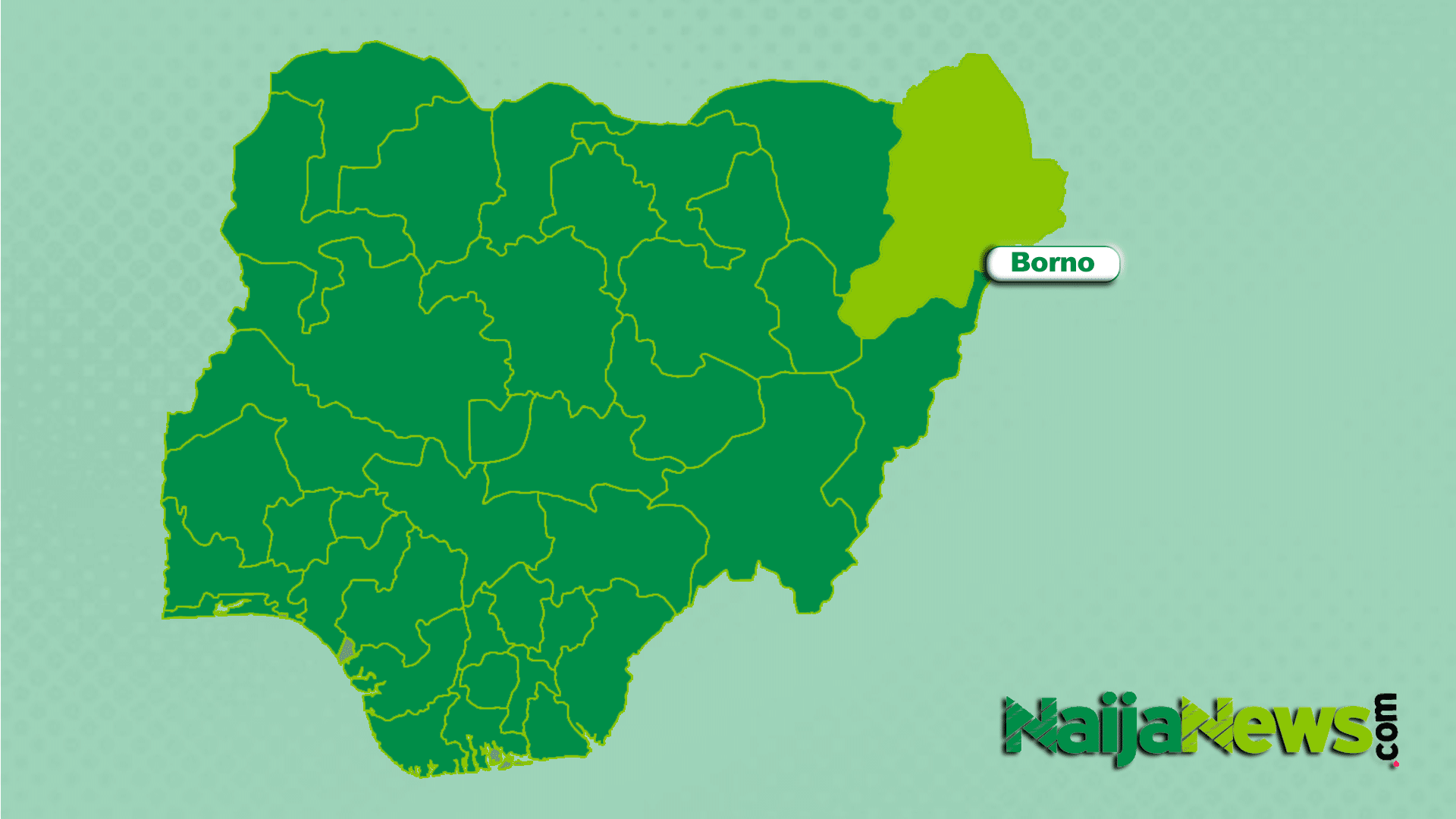In the Name of Allah, the Most Compassionate, Most Merciful.
All praise belongs to Allah, the Sustainer of all worlds. May peace and blessings be upon Prophet Muhammad, his family, and companions.
Inna lillahi wa inna ilaihi raaji’uun – Indeed, we belong to Allah and to Him we shall return.
Nigeria and the wider West African Muslim community mourn the passing of Malam Mouftah Baba-Ahmad, who reportedly departed this world on Wednesday, September 17, 2025, in Madinah, Saudi Arabia. The news has sent ripples across communities from Lagos and Abuja to Accra and the diaspora, underlining the profound impact of losing a loved one and respected figure.
Faith teaches that every soul belongs to Allah, who alone determines our beginning and end. In these moments, patience is encouraged, and believers are reminded that every trial delivers an opportunity for reward. “May Allah increase your reward, ease your sorrow, and forgive the soul that has returned to Him.”
Beyond the immediate grief, the loss of Malam Mouftah Baba-Ahmad encourages reflection on the transient nature of life. In Nigerian cities and towns—from the bustling streets of Kano to the tranquil compounds in Kwara—many residents acknowledge that although we are surrounded by the vibrancies of daily living, the reminder of death compels us to value what truly matters.
Across Africa, it is an undeniable reality that loss is a part of human experience. The pain of bereavement resonates deeply, whether in big cities or rural communities. While the Qur’an states in Surah Al-Baqarah (2:156) that all souls return to Allah, experiencing such parting firsthand leaves many grappling with profound sorrow. This is a universal experience that connects people from all backgrounds, though the teachings of Islam provide a clear framework for handling grief while maintaining spiritual integrity.
Once again, the community is reminded of the brevity of life, as death serves as the ultimate evidence of life’s impermanence. Regional religious leaders, like Imam Sulaiman Musa of Abuja Central Mosque, often reiterate, “Every soul will taste death,” referencing Qur’an 3:185 as a point of reflection for all believers.
Although loss is an expected aspect of life, it is both normal and human to grieve. For those who do not share belief in an afterlife, the sense of separation can be even more overwhelming. In Islam, however, the grief is accompanied by hope, since separation is seen as temporary—believers hope to be reunited in the hereafter. Mourning is permitted and even appropriate, so long as it is expressed within the boundaries set by Islamic tradition.
“Indeed, from Allah we come and to Him we return.” [Qur’an, 2:156] This verse resonates at funerals and moments of loss, echoing through mosques, homes, and gathering places across Nigeria, Ghana, and beyond.
The passing of someone dear is often regarded as a test of faith. It is important to remember, according to scholars interviewed by local outlets, that Allah’s wisdom supersedes our own understanding. Trusting in His decision sustains faith and brings tranquility even in troubling times. Stories such as that of Prophet Musa (AS) from Surah Kahf (18:74-81) powerfully illustrate how tragic events can be rooted in divine knowledge beyond human comprehension.
In one segment, Allah’s wisdom is revealed when a child’s death spares his parents from hardship and leads, eventually, to greater blessings. “And it may be that you dislike a thing which is good for you, and that you love a thing which is bad for you. Allah knows, but you do not know.” [Qur’an, 2:216] For Nigerian and West African families struggling with bereavement, such verses offer solace and perspective amid uncertainty and doubt.
Understanding that Allah determines the moment of every ending helps bring inner peace. In Islamic belief, those who pass away await the Day of Judgement in a state known as Barzakh, unable to influence their destiny further. However, the living can support the deceased through good deeds and prayers, an enduring act of love relevant from Zaria and Ibadan to Kumasi and beyond.
Among the most enduring ways to honour a loved one is through Du’a, or supplication. It is common to hear families gather for special prayers asking Allah to forgive, have mercy, and grant a peaceful place to the departed. One traditional supplication, often recited at funeral gatherings and posted in community WhatsApp groups, prays for forgiveness, mercy, and entry into Paradise for those who have passed away.
Giving charity (sadaqah) on behalf of the deceased is another time-honored tradition across Muslim communities. Many local clerics cite prophetic traditions permitting such acts, highlighting the dual benefit: reward for the giver and the deceased. As recorded by Al-Bukhari, a man once asked the Prophet Muhammad (peace be upon him) if charity in his late mother’s name would be beneficial. The response was unequivocal: “Yes.” This continues today, as families support schools, mosques, and the needy, all in memory of lost relatives.
Honouring the network of relationships the deceased cherished is an equally valued practice. In Nigeria and Ghana, where extended family bonds run deep, it is considered virtuous to visit, assist, or simply pray for those left behind. Reports from Lagos and Kaduna show increased solidarity among communities during periods of communal grief, as people seek to follow the Prophet’s example in maintaining ties after a loved one’s passing.
The natural response to death is a mixture of deep sorrow and longing. Islamic teachings allow space for tears and sadness—both seen as signs of mercy, not weakness. As emphasized in a saying of the Prophet Muhammad (peace be upon him), crying comes from the heart and is a mark of compassion, but excessive displays or self-harm are discouraged. Such lessons resonate in both urban and rural settings, where cultural expectations sometimes conflict with religious guidance. It is important for communities to support each other in grieving in healthy, faith-aligned ways.
Historical accounts record that even the Prophet himself mourned loved ones. For example, when holding his dying son Ibrahim, he cried openly, explaining to a companion that while he discouraged wailing, tears were a sign of mercy sent by Allah. Many local religious leaders use this story in sermons to comfort families facing similar pain today.
Ultimately, death carries a reminder to the living to lead lives of purpose and make the most of every moment. Reflecting on mortality drives many to seek forgiveness, reconcile with loved ones, and pursue acts that have lasting goodness. This perspective is echoed across societies—both religious and secular—when individuals face terminal illness or sudden tragedy. Whether inspired by faith or by the sheer reality of loss, many prioritize relationships and lasting impact over material gain in their final days.
A familiar saying among local Ulamas is, “Pray as if this is your last prayer.” Such advice, repeated in masjids across West Africa, encourages heightened mindfulness and deeper commitment in worship. The passing of respected figures like Malam Mouftah Baba-Ahmad can inspire extraordinary reflection, prompting communities to renew their spiritual practices and support one another.
While the pain of bereavement can be overwhelming, Islamic teachings encourage believers to focus not only on grief but also on the opportunity for spiritual growth and continued prayers for the deceased. Accepting Allah’s decree brings comfort and perspective: the soul has returned to its Maker, and those left behind are reminded to prepare for their own eventual return.
We pray: Inna lillahi wa inna ilaihi raaji’uun – To Allah do we belong and to Him we shall return. May the soul of Malam Mouftah Baba-Ahmad find mercy and forgiveness. May his family, friends, and all who grieve find comfort. May Allah grant us reunion with our loved ones in Jannah (Paradise).
Hasbunallah wa ni’mal-wakil – Allah is sufficient for us, and He is the best disposer of affairs.
O Allah, forgive all who have departed: our kin, friends, elders, and youth. Help us cherish their memory, continue their legacy, and grant our prayers uplift them. O Allah, bestow mercy on Malam Mouftah Baba-Ahmad, pardon his shortcomings, expand his grave, admit him to the highest paradise, and illuminate his resting place.
May Allah’s compassion embrace all our departed loved ones, unite us in righteousness and faith, and grant ease to those grieving, wherever they may be in Nigeria, Ghana, Africa, or the world. Ameen.
All gratitude is due to Allah, the Lord of all creation. May blessings and peace remain with Prophet Muhammad (peace be upon him), his family, and companions.
How does your community honour the memory of loved ones after their passing? What traditions have brought your family comfort? Join the conversation by dropping a comment below, and follow us for more faith-centered updates and stories across Africa.
For general support, reach out at support@nowahalazone.com.
Let’s keep the conversation going—follow us on Facebook, X (Twitter), and Instagram for more local stories, community voices, and updates.









